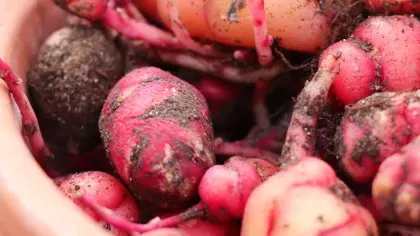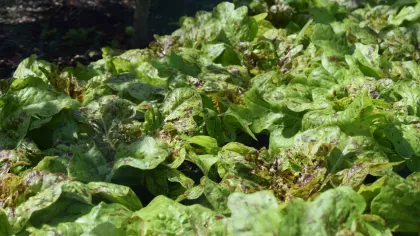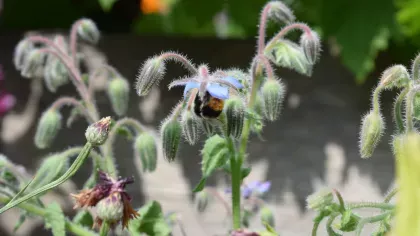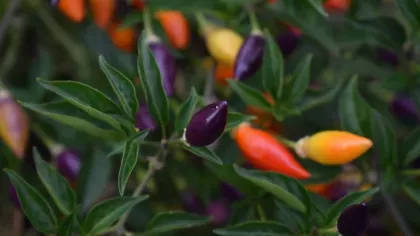Edible Science: Kew’s Kitchen Garden
Read the latest Edible Science: Kew’s Kitchen Garden developments in blogs from our horticulture team.

What is a Kitchen Garden?
Edible Science: Kew’s Kitchen Garden is where we grow edible plants to learn more about producing healthy and sustainable food.
We grow different varieties of common fruit and veg, from carrots and apples to pumpkins and chili peppers.
We also grow heritage varieties, and we experiment with more unusual crops. These may be important sources of food for the future, because some of our staple crops will have to change as the climate becomes more unpredictable.
For example, in 2018 we grew a species of tomato that is much more resilient to changes in climate than the regular tomato.
In Georgian times, our large Kitchen Garden supplied members of the royal family living in Kew Palace.
Today, the fruit and vegetables from the garden are used in Kew’s restaurants.
Read & watch
Get top tips from our experts and learn more about heritage crops and experimental vegetables.
The science of kitchen gardening
Crop rotation
We operate an annual crop rotation in the garden. This means we plant families in different beds each year.
Rotating crops creates a moving target for pests and diseases that attack each crop, and helps to prevent nutrient depletion in the soil.
Companion planting
To encourage the natural ecosystem, we plant 'beneficial' and 'sacrificial' flowers and herbs to support our crops. This helps gardeners avoid having to use chemicals.
Beneficial plants, like marigolds (Calendula) attract useful insects to the beds. Sacrificial plants, or 'trap crops', give the target pest an alternate feast.
No dig method
Our horticulturists use a 'no dig' method in the garden. This is when a layer of organic matter is added to the top of the beds, which suppresses weeds, and protects beneficial bacteria and helpful creatures that live just below the surface.
Visiting Edible Science: Kew’s Kitchen Garden
We may occasionally need to close attractions for maintenance or visitor safety: check for planned closures and visitor notices before you visit.
Did you know?
The Board of Trustees of the Royal Botanic Gardens, Kew would like to thank the following for their generous support of Edible Science: Kew’s Kitchen Garden
- Barbara Aspinal
- Goldman Sachs Gives – Ben and Harriet Thorpe
- The Nicholas Bacon Charitable Trust
- The Roger and Ingrid Pilkington Charitable Trust
and all other supporters of this garden, including those who wish to remain anonymous.
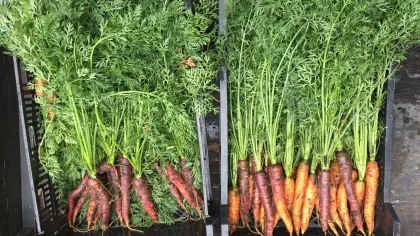
.jpgc860.webp)
